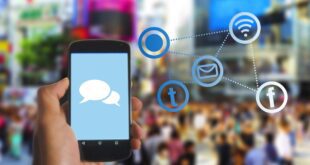The Internet of Things Revolution: A Beginner’s Guide
Introduction
The world is witnessing a massive trend in technology called the Internet of Things (IoT). The IoT revolution has been underway for several years, and it’s transforming the way we live and work. In this guide, we’ll explore what the IoT is, how it works, and how it’s changing our lives.
What is the Internet of Things?
The Internet of Things refers to the ecosystem of devices that are connected to the internet and can communicate with each other. These devices can be anything from sensors, cameras, wearables, and appliances to industrial equipment and vehicles.
How Does IoT Work?
IoT devices work by using sensors or smart technologies to collect data and send it to a network, where it can be analyzed and used to inform actions. The devices are typically connected to the internet through Wi-Fi, cellular, or other wireless technology, allowing them to communicate with other devices and applications.
Examples of IoT Devices
For beginners, it may be helpful to see some examples of IoT devices. Popular examples include:
- Smart thermostats that can learn a household’s heating and cooling patterns over time.
- Smart speakers that can play music, control lighting or give weather forecasts using intelligent voice assistants such as Amazon Alexa and Google Assistant.
- Smart locks that allow homeowners to remotely lock and unlock their doors using a smartphone app or a voice command.
- Industrial equipment that can monitor itself for potential problems or perform tasks autonomously, improving safety and efficiency for workers.
The Benefits of IoT
IoT has tremendous benefits for consumers, companies, and society as a whole. Some of the benefits include:
- Improved efficiency and productivity in the home, workplace, and factories
- Enhanced safety and security for homes and offices
- Reduced waste and energy consumption
- Improved consumer experiences and personalized recommendations based on extensive data analytics
The Downside of IoT
While the benefits of IoT are great, there are also potential downsides that need to be considered. Privacy and security are top concerns surrounding the use of IoT devices as collecting data through connected devices opens the doors to user information vulnerabilities.Depending on the supplier or manufacturer, there may be little accountability when it comes to managing personal and private information from customers who utilize IoT device data.
Conclusion
As more people flock to adopt IoT devices usage within their everyday lives, it is essential to weigh the pros and cons to assess the full picture. a lot of improvisations and additions to the existing system like even stronger security will be required to apply a full-proof IoT implementation in real-life scenarios in households and industries. Nonetheless, it’s clear that IoT has the potential to make our lives easier, safer and more enriching.
 Mind Uncharted Explore. Discover. Learn.
Mind Uncharted Explore. Discover. Learn.




